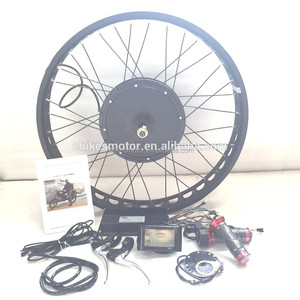Understanding 12 Volt Electric Motor Speed Control
12 volt electric motor speed control systems are essential components in various applications where precise speed and performance are required. By allowing users to adjust the power delivered to a motor, these devices enhance operational efficiency, prolong motor life, and provide the flexibility to match speed to specific tasks. Whether you're involved in hobby projects, industrial automation, or vehicle modifications, mastering the use of these controllers can significantly elevate your project outcomes.
Types of 12 Volt Electric Motor Speed Control
When it comes to 12 volt electric motor speed control, various types cater to different motor types and applications. Understanding these variations can help you select the ideal controller for your needs. Here are the main types:
- PWM (Pulse Width Modulation) Controllers: These are the most common type of speed controllers that adjust the motor's speed by changing the width of the electrical pulses sent to the motor.
- DC Motor Controllers: Specifically designed for direct current motors, these controllers can manage both speed and direction of rotation.
- Analog Controllers: These controllers provide variable voltage output to adjust motor speed smoothly, making them suitable for certain applications that require fine control.
- Digital Controllers: Utilizing microcontrollers, these offer programmable functions that allow for advanced control options and integration with other systems.
Applications of 12 Volt Electric Motor Speed Control
12 volt electric motor speed control units find a multitude of applications across various industries and projects. Here are some prominent scenarios where they play a critical role:
- Automotive Applications: Used in electric vehicles and modifications to control fan speed, pump speed, and other systems dependent on variable speeds.
- Industrial Machinery: Essential in automated systems where precise control of conveyor belt speed or robotic arm movements is vital for efficiency.
- Hobby and DIY Projects: Favored in model trains, remote-controlled vehicles, and other hobbyist projects that require speed adjustment and fine-tuning.
- Home Automation: Utilized in ventilation systems, window blinds, and other devices needing variable speed control for enhanced usability.
Advantages of Using 12 Volt Electric Motor Speed Control
The implementation of 12 volt electric motor speed control offers numerous benefits that enhance performance and usability. Here are some key advantages:
- Enhanced Performance: The ability to fine-tune motor speed leads to better performance in applications where speed variability is crucial.
- Energy Efficiency: By controlling speed, these units can significantly reduce energy consumption, contributing to cost savings and sustainability.
- Extended Motor Life: Soft-start features in many controllers reduce wear and tear on motors, leading to a longer operational lifespan.
- Versatility: A wide range of compatibility with different motor types makes these controllers suitable for numerous applications across various industries.



























































































































































































































